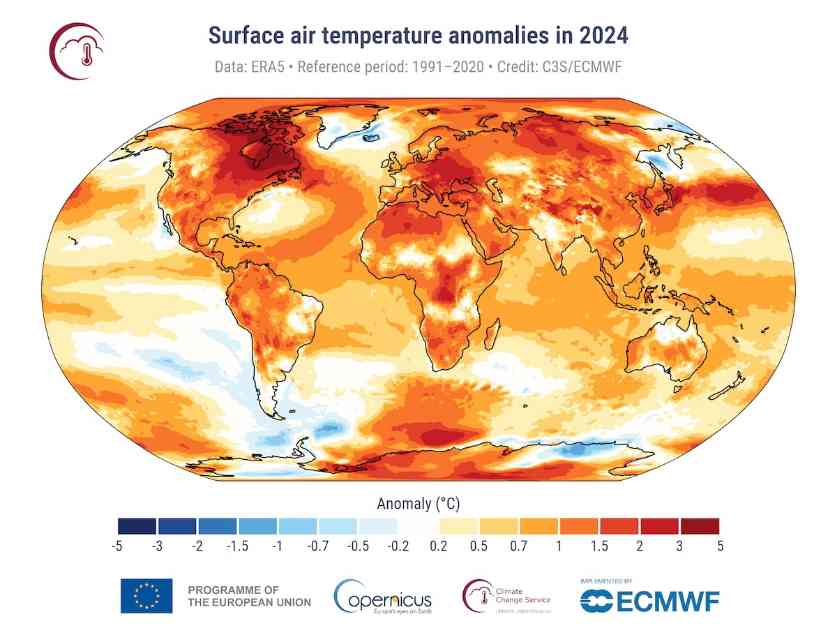In 2024, the global average temperature broke records, surpassing the critical 1.5 degrees Celsius mark set by the Paris Agreement. This unprecedented rise, fueled by the climate crisis, led to extreme weather events worldwide, devastating communities and ecosystems. The United Nations World Meteorological Organization (WMO) reported that last year was the hottest on record, reaching 1.55 degrees Celsius above the pre-industrial average. This alarming trend highlights the urgent need for immediate action to combat climate change and its far-reaching consequences.
Experts Confirm Alarming Trends
Experts from WMO emphasized the severity of the situation, pointing to extraordinary land and sea surface temperatures, along with extreme weather patterns that wreaked havoc on countries globally. The data from various international datasets analyzed by WMO revealed that four out of six showed a global average temperature exceeding 1.5 degrees Celsius, underscoring the urgency of the situation. The Paris Agreement’s goal temperature threshold of 1.5 degrees Celsius is crucial to prevent catastrophic climate impacts, making it imperative for countries to take decisive action.
Impacts on Communities and Ecosystems
The catastrophic effects of climate change were evident in events like the devastating Los Angeles wildfires, which were exacerbated by rising temperatures and changing weather patterns. The European Union’s Copernicus Climate Change Service highlighted the increasing heat stress on our planet, with a record 44 percent of Earth experiencing extreme heat stress in 2024. This shift in climate patterns led to prolonged heatwaves, affecting millions of people worldwide and emphasizing the need for immediate mitigation measures.
Call to Action for Global Leaders
UN Secretary-General António Guterres urged governments to prioritize updated national climate action plans in 2025 to limit the long-term temperature rise to 1.5 degrees Celsius. While surpassing the 1.5 degrees Celsius threshold is concerning, it serves as a wake-up call for intensified climate action to mitigate further temperature increases. The findings by WMO underscore the critical importance of transitioning away from fossil fuels, halting deforestation, and building more resilient societies to combat the escalating impacts of climate change.
This record-breaking temperature increase in 2024 serves as a stark reminder of the urgent need for global cooperation and immediate action to address the climate crisis. As individuals, communities, and nations, we must work together to safeguard our planet for future generations and ensure a sustainable and resilient future for all.














